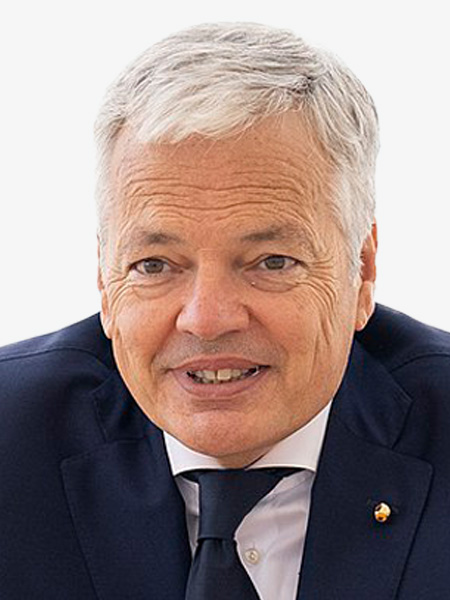This post is based on the keynote speech of Didier Reynders in the first “Annual Conference on Business, Human Rights and Sustainability” organised by the Nova Centre on Business, Human Rights and the Environment with the support of PLMJ, the Portuguese Chamber of Commerce and Industry, CEDIS, as well as NOVA 4 The Globe on the 24th of November 2021.
About the author: Didier Reynders is the Commissioner for Justice at the European Commission.
Dear participants, ladies and gentlemen,
It is a great pleasure to open this webinar on due diligence and children’s rights.
All EU policies and actions having an impact on children must consider their rights and their best interests. And it’s my responsibility in the Commission to oversee this. Our work to protect children’s rights is guided by the United Nations Convention on the rights of the child, which all EU Member States have ratified. And the EU Charter of Fundamental Rights is our legal basis. The rights of the child component of the EU Charter is very strong. And it prohibits child labour.
Earlier this year, the Commission adopted the EU Strategy on the Rights of the Child, renewing our commitment to combat forced labour as a priority. We are also committed to promoting the protection of victims of business-related abuses, and the ratification and effective implementation of ILO fundamental conventions. That is why I will soon table a proposal to set EU-wide binding due diligence rules for global supply chains.
I believe that legally binding measures are necessary to address the complex problems in the supply chains with regard to adverse impacts on the environment and on human rights. Voluntary initiatives simply do not work. The proposal will oblige companies to identify, address and remedy harm to both human rights and the environment throughout their value chain.
To create a level playing field, all EU businesses and non-EU companies generating important turnover in the internal market will have to apply the rules. But it’s not just about ensuring economic fairness in the EU’s single market. It is also about ensuring that every company contributes to protecting our common planet and human rights, including the rights of children.
Children are vulnerable in the supply chain. Especially lower down, in sectors of concern such as agriculture, manufacturing and mining. Indeed, the most flagrant violations of human rights, such as forced or child labour, often happen further down the value chain. Beyond the EU’s borders. There is evidence of young children working for long hours scavenging for rocks containing cobalt for our smartphones. Or children working in hazardous conditions for the cocoa that we eat and drink.
Children who are forced to work are robbed of their childhood. They are robbed of their right to an education, which deprives them of opportunities later in life. Children who are forced to work often take on much bigger responsibilities. They have to provide for their families while enduring hard, unhealthy and often dangerous working conditions. EU leadership, both in the EU and globally can make a difference.
What we are looking at are common EU rules addressing risks of worst forms of child labour across the value chains. In line with international standards, these rules will oblige companies to identify, mitigate or prevent possible harm linked to:
- their own operations,
- their products and services, and
- the entirety of their upstream and downstream value chains
The initiative will build on the United Nations’ Guiding Principles on Business and Human Rights, the OECD Guidelines for Multinational Enterprises and its Due Diligence Guidance for Responsible Business Conduct. It will also clarify the duty of company directors to manage sustainability risks related to the impact of companies’ activities on the environment and stakeholders. I believe that these tools and measures would strengthen the protection of the human rights of all stakeholders throughout a company’s value chain. This includes in particular a better protection of children. It is a chance for the EU to transition to a much-needed business model that is fairer and more sustainable, and lead the world in sustainable corporate governance.
I hope you enjoy the webinar, and wish you a fruitful debate.
Suggested citation: Didier Reynders, ‘Keynote Speech on Business and Children’s Rights’, Nova Centre on Business, Human Rights and the Environment Blog, 13th January 2022.

